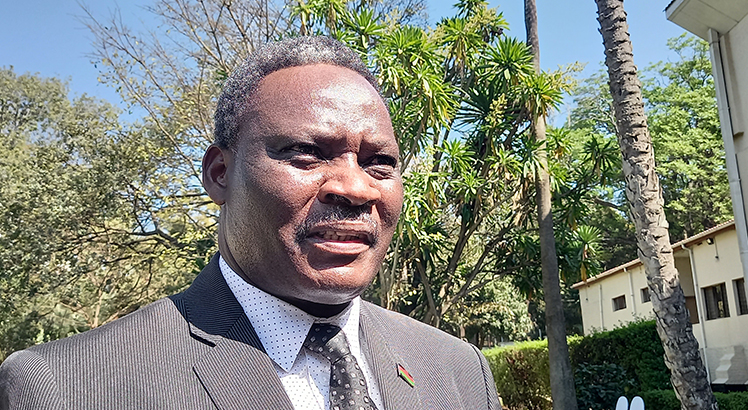Assets forfeiture key in graft fight—Chief Justice
Chief Justice Rizine Mzikamanda has asked law enforcement agencies to work together to ensure speedy processes in court cases and the recovery of all assets in financial and economic crimes.
He said proceeds from recovered assets can be used in development projects and in the provision of social services in the country.
Mzikamanda said this at the start of a two-day Judiciary Asset Recovery Training Workshop which started on Thursday and ended on Friday in Blantyre.
He said: “We have come to realise the growing need for a specialised court to handle financial crimes. This is why there was a proposal to amend the Courts Act and institute a task force that is working towards the establishment of the Financial and Economic Crimes Division of the High Court.”

Mzikamanda further called on fellow judges to prioritise some of the cases in the corruption category that have been outstanding for a long time.
“We are all overburdened, but in the due course of time we will be able to identify some judges who can really speed up these matters. We are committed to the whole process of asset recovery and we think that it is good for our country and for the Judiciary as well,” he said.
The sentiments come at a time some experts feel the Anti-Corruption Bureau (ACB) and Directorate of Public Prosecutions (DPP) take too long to bring cases for trial, a problem they largely blame on hasty arrests before investigations are concluded.
For example, of the 60 Cashgate-related cases in 2014, roughly 40 never made it to the trial stage five years after arrests, according to a 2021 Global Integrity Anti-Corruption Evidence Project report titled ‘Law Enforcement and High-Level Corruption in Malawi: Learning from Effective Law Enforcement’.
During the workshop, a handbook on asset forfeiture compiled by the United Nations Office on Drug and Crime (Unodc) in partnership with the Common Market for Eastern and Southern Africa (Comesa) was launched.
Comesa head of governance peace and security Elizabeth Mutunga said the training was important as it was in line with the bloc’s objectives of promoting economic integration as well as maintaining peace and stability.
“Issues of money laundering and financial crimes weaken integration. We want to strengthen the Judiciary and every institution that deals with economic integration, peace and security,” she said.
Mutunga also underscored that money laundering and most financial and economic crimes are transnational organised crimes, hence the need to strengthen all countries “because if any country is weak in addressing these challenges, they pass on the problem to the other. Money laundering weakens the economy”.
On her part, Unodc global programme against money laundering adviser, Atuweni Agbermodji, said Malawi, like most countries, is having difficulties in recovering assets but instead puts more efforts in punishing the criminals.
She explained: “We need to understand that crime is done for benefit and, therefore, we should take the benefit out of the crime.
“This is still a developing knowledge, but it is something that law enforcement practitioners need to understand.”
Agbermodji said Unodc identified the need for capacity building in the Judiciary to ensure that it is able to enforce both after-conviction and non-conviction based asset forfeiture.





